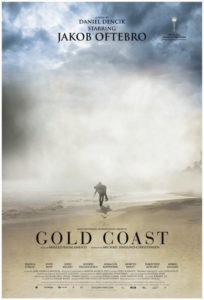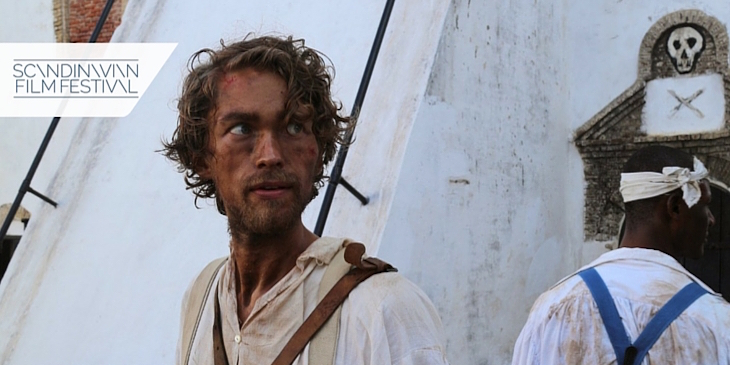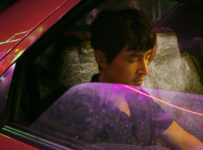 An ambitious debut film from Daniel Dencik examines the consequences of colonialism, embracing the madness of the world that it depicts.
An ambitious debut film from Daniel Dencik examines the consequences of colonialism, embracing the madness of the world that it depicts.
The Danish colonial empire was 3,000,000 square kilometres at its apex, including a number of forts and trading posts in India, the Caribbean and Africa. GOLD COAST (GULDKYSTEN) refers to the colonies around the west coast of Africa, primarily modern day Ghana, which was the centre of the slave trade to the Danish West Indies. Based partly on the letters of the real-life Wulff Joseph Wulff, the film was said to originally involved Sophia Adegnika as a love interest for the character. Yet with Adegnika reportedly falling ill during the filming, what we get is something far more cerebral in its execution.
Idealistic botanist Wulff (Jakob Oftebro, TV’s 1864) arrives in Danish Guinea full of hope and plans to start up a commercial coffee plantation. As he begins to work with the native inhabitants of the area, actively defying the colonialism of the day, his bright-eyes and bushy tail run smack-bang into the corrupt forces that act to keep the empire well-lubricated and functional. In an odd sort of way, it’s a musing on the very real and continuing practices of exploitation and slavery, played out within this band of dark history that Danish filmmakers are increasingly willing to explore the edges of.
One of Wulff’s observations is that “The very nature of time is different” in his new world, and the same could be said for Dencik’s film. There’s an undeniable stylistic similarity to Terrence Malick, especially considering the latter’s subject matter in The New World. As Wulff’s outlook becomes far more philosophical and inward-looking, the comparison becomes more apt, and our awareness of the passing of time becomes far more flexible. Events begin to happen to Wulff rather than him being an active participant, with the back half of the film playing out like a fever dream. It’s undoubtedly a lyrical way of examining an historical event. Indeed the film begins with a scene of Wulff being urinated on by captors, and the first part of GOLD COAST is spend bringing us to this moment. Yet it’s also handled without Malick’s finesse, rapidly drifting into a directionless melee, with the inevitable confrontation having very little control once it gets started.
Elements of Angelo Badalamenti’s (Twin Peaks) atmospheric score holds the film together thematically at least, punctuated as it is by a disconcertingly pulsing modern beat at key moments. Cinematographer Martin Munch punches well beyond his television and short film origins, and his otherworldly shots bring the film closest to the Malickian vibe (by way of Emmanuel Lubezki) that Dencik craves. By it’s very structure, GOLD COAST is abstract in nature, and difficult to quantify in any concrete way. If it’s less than the sum of its parts, it’s certainly not due to any earnestness on Dencik’s part.
THE GOLD COAST (GULDKYSTEN) is playing at the Scandinavian Film Festival 5 July – 3 Aug around Australia. Check scandinavianfilmfestival.com.au for times.
2015 | Denmark | DIR: Daniel Dencik | WRITERS: Daniel Dencik, Sara Isabella Jønsson Vedde | CAST: Jakob Oftebro, Danica Curcic, John Aggrey | RUNNING TIME: 114 minutes | RATING: ★★★




